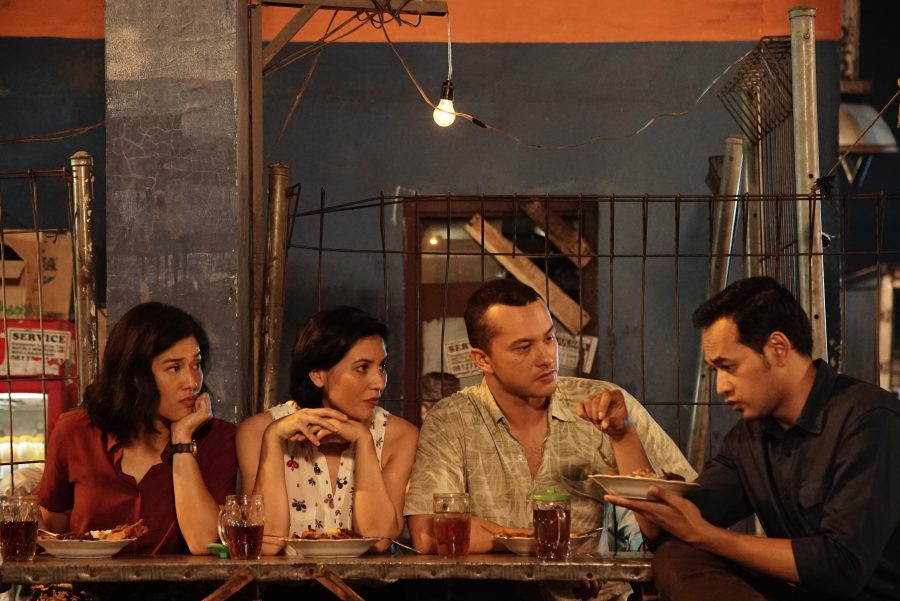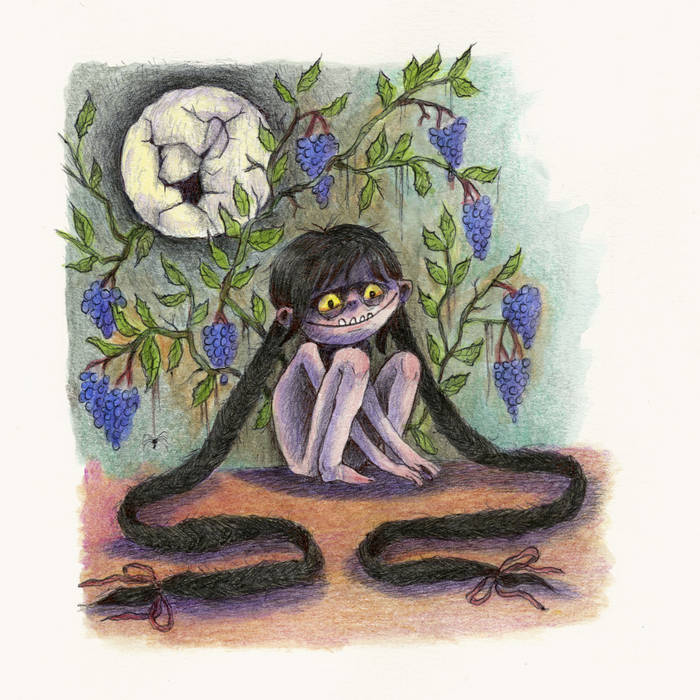The San Diego Asian Film Festival returned April 11-18 with its 9th annual Spring Showcase. This year, the festival focused on diversifying the face of Asian cinema, demonstrating a variety of films from over nine countries all across Asia. Here are the Guardian Arts and Entertainment staff’s favorite films.
“Waiting for Sunset”
Teresa (Perla Bautista) and Celso (Menggie Cobarrubias) are possibly the cutest elderly couple alive. At first sight, it seems as if the greatest problem for the two may not be the pubic hairs Celso leaves on the soap bar that drive Teresa insane or the strange watermelon chicken stew that Teresa spontaneously put together, but that they just love each other too much. But when Teresa’s estranged husband Bene (Dante Rivero) falls ill and Teresa decides to take care of him, it seems not everything is as perfect as it seems. Together, Teresa and Celso must confront this elusive figure from the past and find peace as Teresa spends more time with him in his final moments.
“Waiting for Sunset” is a beautiful, heart-wrenching testament to the power of enduring love and the act of forgiving. With a stunning performance from Perla Bautista as the loving Teresa, the film speaks to reconciliation with past and present, and the personal choices we make throughout our lives. With its muted amber palette evoking a slow encroaching twilight, “Sunset” approaches the uncertainty of old age with a certain sensibility and restraint, making for a viewing experience that is at once charming and heartbreaking.
— Justin Nguyen, Senior Staff Writer
“Aruna & Her Palate”
Indonesian director Edwin’s fourth feature film, “Aruna & Her Palate,” traces the story of Aruna (Dian Sastrowardoyo), a food-obsessed epidemiologist sent across Indonesia to investigate the possibility of an avian flu epidemic. Aruna, at the behest of her friends Bono (Nicholas Saputra), a professional chef, and Nadezhda (Hannah Al Rashid), a culinary writer and critic, brings them along her journey to sample the regional cuisine of Indonesia. The trio collectively partakes in an informal part culinary, part vocational trip. Along the way, they are also joined by Farish (Oka Antana), Aruna’s former co-worker and love interest who coincidentally is assigned to work the case with her. As the four individuals traverse the country in search of both epidemic evidence and mouth-watering Indonesian food, they ultimately encounter uniquely Indonesian aspects of religion, politics, conspiracy, and love.
The film, though classified as a romantic comedy, invokes vivid, compelling shots and descriptions of regional Indonesian cooking and food that seems to emulate cooking shows. Director Edwin manages to strike a balance between the hearty and genuine nature of street food and the sophistication required to depict the dishes on film. The camera movement serves to emphasize the movement and effort put into making each recipe while also aptly capturing the texture and color unique to Indonesian cuisine. The food also takes on a symbolic value as the compatibility of flavors within each dish embody the ever-evolving relationships between the characters. “Aruna & Her Palate,” amidst its investigative plot, offers succinct and powerful insight into a South Asian country through its style of cooking.
— Aaron Hong, Contributing Writer
“Swing Kids”
The Korean War … and tap dancing? It’s an unlikely combination that “Swing Kids,” a 2018 movie directed by Kang Hyeong-cheol, tackles with mixed results. Do Kyung-soo, known as “D.O.” from K-pop group EXO, plays Roh Ki-soo, a North Korean prisoner of war. While at the Geoje prison camp overseen by Americans, Ki-soo spots Sergeant Jackson (Jared Grimes) tap dancing. Enthralled, he joins Jackson’s dance team, and Ki-soo’s new “yankee” pastime leads his comrades to question his loyalty.
Well-choreographed tap dancing scenes are infectious enough to make viewers start tapping their feet, but dampening these fun, “Footloose”-esque scenes is a muddled political narrative that struggles to tell its anti-war message. Showy dance routines and cheesy visual effects are thrown in the mix with surprisingly bloody and sobering moments, and this jarring tonal disparity makes for a disorienting two-hour watch. For example, a confrontation between American soldiers and Ki-soo switches back and forth between a dance-off and an assault on Ki-soo. At worst, this trivializes the mistreatment of POWs; at best, viewers don’t know whether they’re supposed to laugh or feel sorry. “Swing Kids” tries to make its viewers do both, but, like Ki-soo learns, it’s safer off picking a side.
— Natalie Tran, Senior Staff Writer
“Song Lang”
“Song Lang,” director Leon Le’s first full-length film, is a love letter to Vietnamese folk opera (known as cải lương) as well as a tender exploration of queer love in 1980s Vietnam. The film tells the story of Dung (Liên Bỉnh Phát), a ruthlessly efficient debt collector, and his fateful encounter with Linh Phuong (Isaac), the leading man of a cải lương troupe. They first meet under contentious circumstances — Dung means to burn the troupe’s costumes when they fail to pay a loan on time. However, over the course of a night, the pair forms an unlikely, life-altering connection as they bond over family, art, and their mutual love of cải lương.
The film is a captivating success, expertly exploring the push-and-pull between Vietnamese tradition and modern society. Dung plucks his song lang (a Vietnamese musical instrument) alongside Nintendo video games and cassette tapes. Haunting traditional folk music plays over shots of a changing urban Saigon. The tension of change is most evident in Dung’s personal life — Dung must choose between moving forward in his cruel and unsatisfying life as a loan shark, or embracing his longtime love of cải lương. Liên Bỉnh Phát and Isaac are exceptional in their roles, conveying layers of churning emotions with only a few glances toward each other. When Dung meets Linh, their chemistry is immediate and electric. As their taunts evolve into intimate conversations and tentative interest, the two of them must navigate what they mean to each other, and what they are willing to sacrifice for a life worth living.
— Tanya Nguyen, Contributing Writer
“Go Back to China”
Sasha Li (Anna Akana) is facing a classic millennial dilemma: she’s a year out of school and more than ready to get her first job but she lacks the experience to get the fashion designer position she desires. Fortunately for Sasha though, this is not the end of the world; her father Teddy Li (Richard Ng), CEO of a China-based toy company, keeps her well-funded with her million-dollar trust fund, half of which she has happily blown through on high fashion and wild nights. Enamored by her LA lifestyle, Sasha ignores her father, who she resents for his womanizing, yet simultaneously traditionalist ways. However, everything changes when her father cuts her off and presents her with an unappealing ultimatum — get a job and support herself, or move back to suburban China.
Light-hearted and witty, “Go Back to China” presents a tale as old as time: the spoiled heiress who has to learn to grow up. But despite its Hallmark-esque tone and premise (heck, it even takes place during Christmas), it offers a more nuanced look at the relationships between business, family, and culture. Sasha is not the classically vapid heroine who becomes charmed by an unfamiliar world. Instead, she forges more meaningful relationships with her father and sister while continuing to expose their flaws and navigating boundaries. Funny and thoughtful, “Go Back to China” is a fresh heart-filled film that’s sure to charm.
— Chloe Esser, A&E Editor
“Reza”
“Reza” is a Persian romantic drama that depicts the titular character’s experiences with love in the aftermath of his divorce. Reza (Alireza Motamedi) and Fatti (Setareh Pesyani) decide to divorce after nine years of marriage for unspecified reasons, but they still maintain an intimate and friendly rapport with each other. In fact, on the day of their legal separation, they must practice in order to look as if they hate their life together, fearing that the officials will not validate their divorce unless they look miserable. After the divorce, Reza, who narrates a book he is writing throughout the film, attempts to move on by meeting other women. However, his intermittent encounters with Fatti make him wonder if moving on is for the best.
This film is an introspective and genuine presentation of a man attempting to mend his broken heart. Ironically, the most poignant scenes are those that focus on an extended shot of Reza doing nothing but sitting or standing in silence. These instances are compelling because they allow the audience to reflect upon their own lives as Reza reflects upon his own. However, apart from these instances, the film has an unfortunate tendency to feel slow or unfocused in its plot development. Despite being a very beautiful film, the lack of formative or gripping events in the film prevents it from developing to its full potential.
https://www.youtube.com/watch?v=epIBh-pBoB4
— Laura Hatanaka, Senior Staff Writer
Image from “Aruna & Her Palate” courtesy of sdaff.org.
Post updated April 28 2019 to include “Reza” review.















Lina Tran • Apr 29, 2019 at 2:39 pm
I LOVE SONG LANG TOO. Loved your review of these movies.